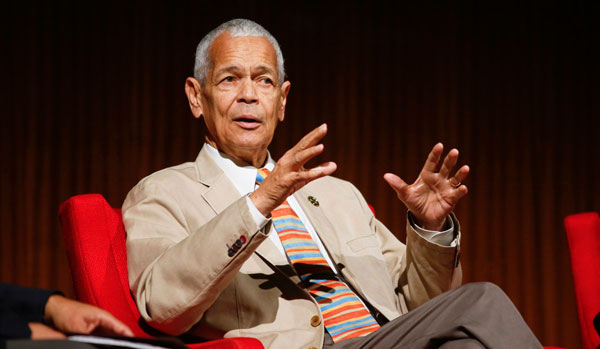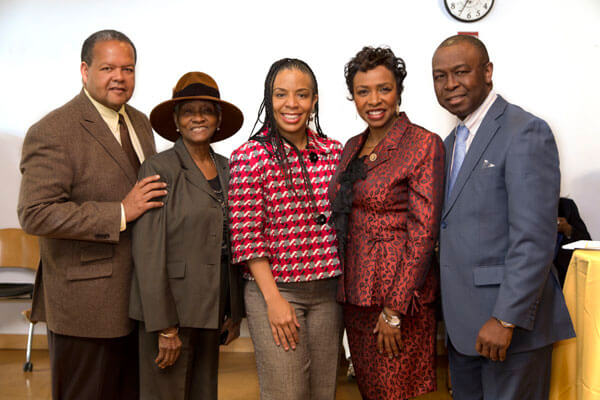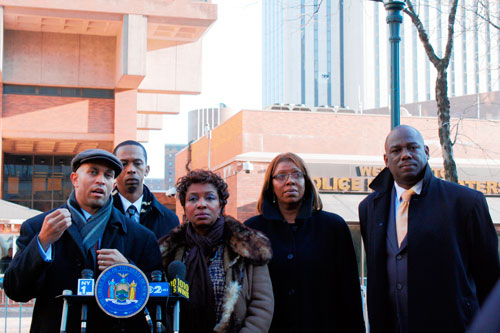Brooklyn Congresswoman Yvette D. Clarke has described Julian Bond as “a man of courage and moral vision who insisted on his right and the right of all African Americans to participate in the politics” of America.
Julian Bond, a charismatic figure of the 1960s civil rights movement, a lightning rod of the anti-Vietnam War campaign and a lifelong champion of equal rights, notably as chairman of the National Association for the Advancement of Colored People (N.A.A.C.P), according to the New York Times, died on Saturday night in Fort Walton Beach, Fla. He was 75.
Among other things, Bond was a founder of the Southern Poverty Law Center.
Clarke, who represents the 9th Congressional District in Brooklyn, noted that when Bon was elected to the Georgia House of Representatives at 25 years of age, his colleagues refused to admit him because of his work as a civil rights activist.
“But he was soon vindicated by a unanimous Supreme Court decision, and became a distinguished member of the legislature, where he established the Georgia Legislative Black Caucus,” Clarke told Caribbean Life.
As a founder of Student Nonviolent Coordinating Committee, the congresswoman said Bond was “on the front lines of protests that led to the nation’s landmark civil rights laws as we know and continue to fight for to this very day.”
“His activism continues to inspire generations of activists dedicated to social justice,” Clarke said. “His contributions to the Southern Poverty Law Center and the NAACP remain invaluable to protecting the civil rights of every American.
“Julian Bond was a man of history whose legacy will continue in our work to secure for all people the full blessings of American life,” Clarke added.
The Southern Poverty Law Center announced Bond’s death on Sunday, according to the Times. His wife, Pamela Sue Horowitz, said the cause was complications of vascular disease.
Bond was one of the original leaders of the Student Nonviolent Coordinating Committee while he was a student at Morehouse College in Atlanta.
“He was the committee’s communications director for five years and deftly guided the national news media toward stories of violence and discrimination as the committee challenged legal segregation in the South’s public facilities,” the Times said.
“He gradually moved from the militancy of the student group to the leadership of the establishmentarian N.A.A.C.P,” it added. “Along the way, Mr. Bond was a writer, poet, television commentator, lecturer and college teacher, and persistent opponent of the stubborn remnants of white supremacy.”
The paper noted that Bond also served for 20 years in the Georgia General Assembly, “mostly in conspicuous isolation from white colleagues who saw him as an interloper and a rabble-rouser.
“Mr. Bond’s wit, cool personality and youthful face — he was often called dashing, handsome and urbane — became familiar to millions of television viewers in the 1960s and 1970s,” the Times said.
“On the strength of his personality and quick intellect, he moved to the center of the civil rights action in Atlanta, the unofficial capital of the movement, at the height of the struggle for racial equality in the early 1960s,” it added.


















